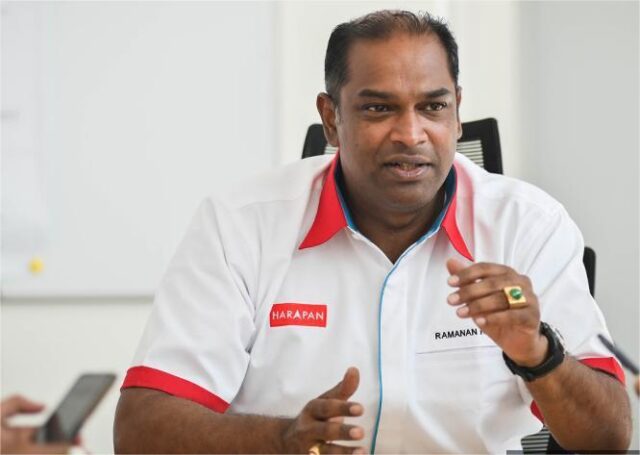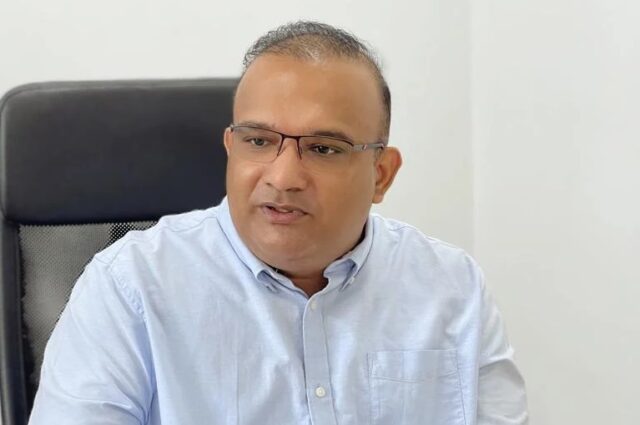 (By R. Mutharasan)
(By R. Mutharasan)
Kuala Lumpur – As the highly anticipated PKR party elections capture nationwide attention, particularly the deputy president contest between Rafizi Ramli and Nurul Izzah, the race for four vice-president positions has also emerged as a significant battleground.
Of the 12 candidates competing for vice-president posts, four are of Indian origin, sparking optimism within the Indian community about the possibility of finally securing representation at this critical level of the party structure.
However, ground realities within PKR suggest that none of the four Indian candidates would be able to succeed.
Historical Context: 2022 Election Results
 In PKR’s previous party elections held in 2022, no Indian candidate secured a vice-president position. Manivannan Gowin, the former Kapar MP, came closest by finishing fifth overall. Despite polling the highest votes among Indian candidates, he fell short of the four available positions.
In PKR’s previous party elections held in 2022, no Indian candidate secured a vice-president position. Manivannan Gowin, the former Kapar MP, came closest by finishing fifth overall. Despite polling the highest votes among Indian candidates, he fell short of the four available positions.
The 2022 vice-president winners were:
- Amirudin Shari – Selangor Menteri Besar
- Chang Lih Kang – Minister of Science, Technology and Innovation
- Nik Nazmi Nik Ahmad – Minister of Natural Resources and Environment
- Aminuddin Harun – Negeri Sembilan Menteri Besar
All four incumbents are seeking re-election this year.
The Indian Candidates

Manivannan, who currently serves as a political secretary to the PKR president, is making another bid for the position. He faces competition from three other Indian candidates among the eight new challengers. The four Indian candidates vying for the coveted Vice President’s post are:
- Datuk Seri R. Ramanan – Entrepreneur and Deputy Minister of Entrepreneurship and Cooperatives
- R. Yuneswaran – Segamat MP
- Dr. Sathyaprakash Nadarajan – PKR Deputy Secretary-General
- Manivannan Gowin – PKR President’s Political Secretary
New Electoral System Creates Uncertainty

PKR has fundamentally altered its election mechanism for 2024. Instead of direct voting by party members, 32,030 delegates will now elect the leadership. This delegate selection process follows a complex formula that reflects ethnic composition within each division.
Under the new system, if Indians comprise 20% of a division’s membership, then 20% of that division’s delegates must also be Indian. The exact proportional representation applies to all ethnic groups. Additionally, women must constitute 30% of all delegates.
Candidates for division-level positions can also recommend delegates based on their vote percentages, adding another layer of complexity to the process.
The Numbers Game

Estimates show that Indians comprise approximately 40% of PKR’s membership. However, party insiders estimate that Indian delegates comprise no more than 20% of the total delegate count. With four Indian candidates in contention, this vote bank will likely fragment among them.
The specific number of Indian delegates remains undisclosed, making accurate predictions challenging.
Tough Competition Ahead
Popular incumbents, including serving ministers and Menteri Besars, present a formidable opposition to new candidates trying to unseat them. Combined with the vote-splitting effect among Indian candidates and the untested new electoral system, the prospects for Indian representation at the vice-president level appear dim.
As PKR navigates this inaugural election under its revised electoral procedures, the Indian community’s hopes for senior party representation face significant structural and political challenges.










